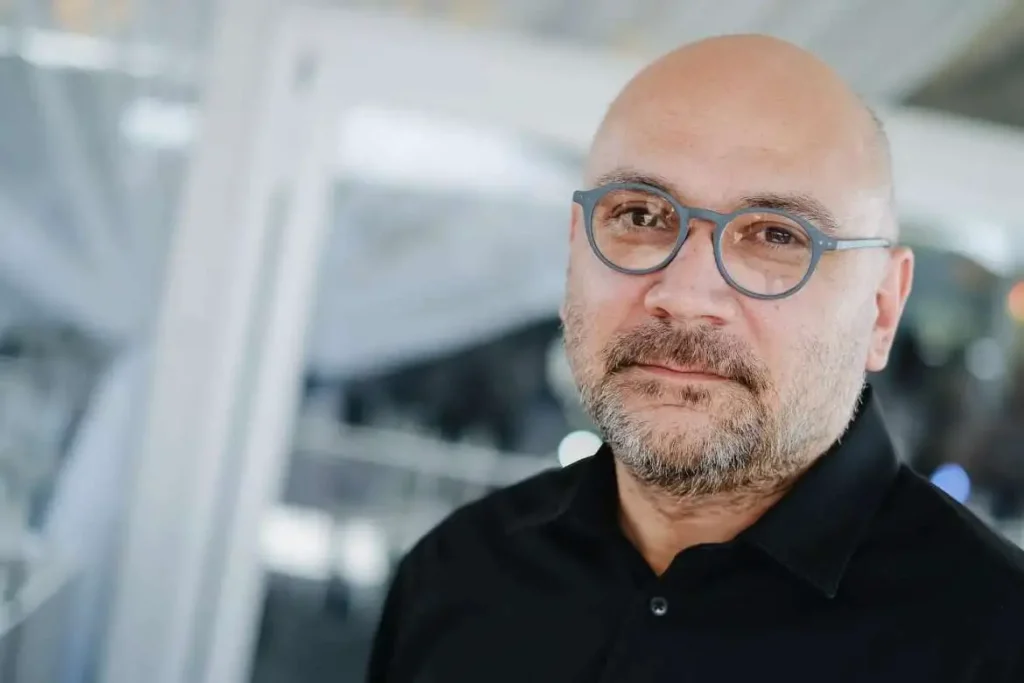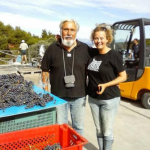February the 14th, 2024 – Marko Rakar and his company are continuing a very pressing issue by storm and are issuing a very alluring bond.
As Lider/Tomislav Pili writes, the preparation of the court battle with the banks regarding compensation for loans in Swiss francs has led the company Druga foundation SPV, behind which is entrepreneur Marko Rakar, to place a bond that can brings investors as much as a double-digit annual yield.
Marko Rakar’s company caused a stir when it contacted thousands of debtors in CHF loans last spring with an offer to buy out claims for compensation. In an interview with Lider, Marko Rakar says that Druga fundacija SPV has so far raised a little more than a thousand claims and expects to raise at least a thousand more in the coming weeks. These will be for client compensations that aren’t covered by the statute of limitations that expired in June last year.
When asked what the total value they are demanding from the banks actually is, Marko Rakar stated that the amount largely depends on the results of financial expertise. It also depends quite heavily on the position of the Croatian Supreme Court regarding the position of converted loans, which is expected over the next few months.
“We know from the existing and publicly available court practice(s) that the compensation for an average case stands at approximately fifteen thousand euros, and we’ve committed to pay our clients 75 percent of that compensation amount. Just like before, the costs of the procedure are at our expense even if we fail, so there are no risks for the client at all, only a reward,” explained Rakar.
After the submission of the lawsuits and the statements of the banks themselves, the procedure of convening preparatory hearings began, which, according to Marko Rakar’s expectations, should be more or less completed during the first quarter of this year. He added that in the proceedings involving converted loans, things have been temporarily suspended pending the publication of the Supreme Court’s position, and in several proceedings, a financial expert has also been determined.
“Despite the judges’ strike that happened last summer and with similar issues we faced again in January, we believe that the proceedings are being carried out as best as we can expect them to be. The banks have buried us with a whole series of legally unsustainable and thoroughly contested objections, and their obvious goal is to delay the proceedings instead of constructively solving this pressing problem. Since our financing is settled, these exhaustion tactics aren’t going to work, and they will have to pay 12 percent default interest on our claim, which is more than the yield on any of their financial instruments. Basically, they’re doing themselves more harm than good,” Rakar stated.
Precisely for the financing of litigation, Rakar’s company plans to borrow from investors through bonds. These aren’t just any bonds, however, but the very first litigation bond in Croatia. Last week, they successfully dealt with the first tranche of the private bond issue. This, as well as all future tranches, have a maturity of five years and a yield of 12 percent per year, explained Rakar.
“The total expected amount of the bond issue in 2024 stands at slightly less than one million euros. The collected money will then be used to cover the costs of the company’s operations, and by that I’m referring to court and lawyer’s fees, which, given the number of cases we handle, are significant,” Rakar said.
The first tranche of the bond provided financing for all procedures initiated so far, while the rest will be used for the phases still to come. The plan is to start collecting clients on whose behalf they would claim compensation for both euro and kuna loans, that is, for the bulk of all loans issued in Croatia, and where, in Rakar’s opinion, the same rights violations occurred as with CHF loans.
“There’s no statute of limitations in these segments, there’s a legal basis, and the total exposure of banks is far greater than with CHF,” Rakar pointed out.
According to data from the Central Clearing Depository Company (SKDD), the first tranche of 400,000 euros was put forth by three investors, one of them being institutional, and two being deemed natural persons. The largest share of 61.7 percent is currently held by the Orca Bason fund, founded by Vuk Vuković, which is also included within Rakar’s company. As for individual investors, IT expert and entrepreneur Lucijan Carić holds 26.4 percent of the shares, and Marko Saša Rukonić holds 11.9 percent.
Marko Rakar openly stated that all kinds of investors are welcome in the next tranches.
“Considering the attractiveness of the yield compared to other currently available financial instruments on the market, the expressed interest of potential investors, both domestic and foreign, and the increasingly clear legal position we’ve taken, we expect that there will be no problem in achieving our expected goal. One little issue is that we’re a bit ‘radioactive’ and although we have a lot of interest from Croatian investors, for those who have relations with domestic banks, our transparency in our business poses a problem, so we’re an acceptable investment only for truly independent individuals and legal entities. We don’t have these kinds of problems abroad and we’re in discussions with both British and French litigation funds. Our bond is a unique instrument on the Croatian financial market and we believe that it’s the first litigation bond ever issued in this country,” emphasised Rakar.
In addition to loans taken out by individuals, Rakar’s company also plans to collect claims for compensation for loans taken by companies. However, the situation is somewhat different here. In contrast to loans issued to individuals that are protected by a collective judgement, the situation with legal entities is somewhat more complicated and a stricter legal standard is used. On top of that, the preparation of the case for compensation must be extremely thorough and precise,” emphasised Marko Rakar.
“With that being said, the same rights that have been violated in regard to physical persons have also been violated by legal ones, the difference is that for each situation we have to prove it from the beginning since there’s no basis for a collective verdict. In the case of legal entities, the statute of limitations hasn’t yet expired and we continue to contract new clients. In terms of number or amount, far fewer CHF-denominated loans were placed to legal entities than to individuals. That’s why the principal amounts are significantly higher, so we believe that the portfolio of legal entities, in terms of value, will catch up or even surpass the number of cases we already have in procedure,” revealed Rakar.
In addition to all of the aforementioned, Rakar’s company is taking on two more legal battles. At the end of January, they started proceedings in London before IFRS, the authoritative organisation that prescribes financial reporting standards (international accounting standards). Rakar said that during the preparation of that project, they made a detailed financial analysis of the operations of all Croatian banks over the past fifteen years, and submitted evidence showcasing that for years, domestic banks allegedly avoided reporting the fair value of their disputed claims and debts (in the case of CHF) in accordance with international and binding standards. Naturally, such a practice ultimately has a very significant impact on the presentation of any financial results later derived.
Another potential lawsuit concerns entry and exit fees. Within Rakar’s company, they believe that this situation has been covered by a series of court decisions, such as the Constitutional Court, the Supreme Court, and European courts.
“In short, any entry and exit fee for any loan is considered an unfair practice which is consequently null and void. Our calculations show that the average compensation claim reaches up to two to three percent of the principal amount of the loan, which isn’t a negligible sum of money for consumers or banks. If you look at the financial results of the banks, it’s clear that today they derive more and more of their income from fees, some of which turned out to be illegal,” believes Rakar.
Although Marko Rakar claimed that the offer was sent only to those identified through publicly available land registers, some of the debtors understood this as an attack on their privacy. Prompted by articles circulating in the media, the Agency for the Supervision of Personal Data launched surveillance to determine whether the data on “Swiss loans” had really been extracted from the land registers or whether Druga fundacija SPV shad some tool or access that isn’t publicly available at its disposal.
Marko Rakar said that the company has been exposed to enormous pressure all the time, which, as one might expect, resulted in the supervision of AZOP (Croatian Personal Data Protection Agency).
“From the beginning of our work until today, we’ve received only one inquiry about the use of personal data, which came from, let’s refer to them as… a very motivated person. We believe that during the supervision process, we proved our full compliance with GDPR, and demonstrated exceptional attention to this aspect of our business. As for the problematisation of our data source, it’s worth emphasising that public sources are explicitly listed as a permitted source of data in the new law regulating the purchase and sale of receivables, so even though the procedure hasn’t yet been formally completed, we expect a favourable outcome,” concluded Marko Rakar.










